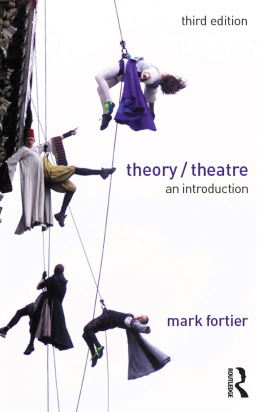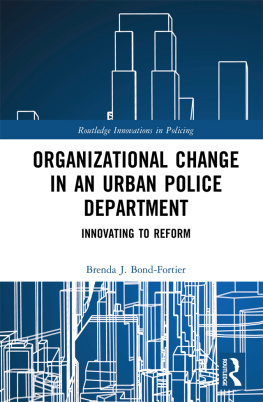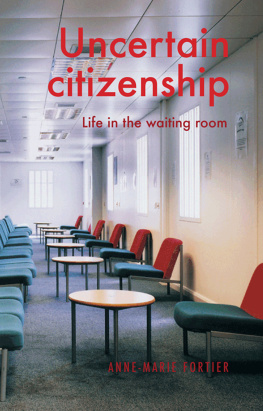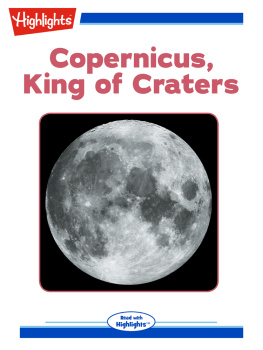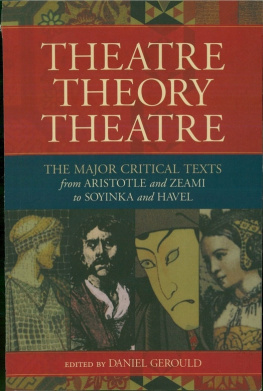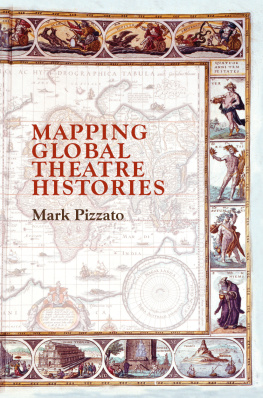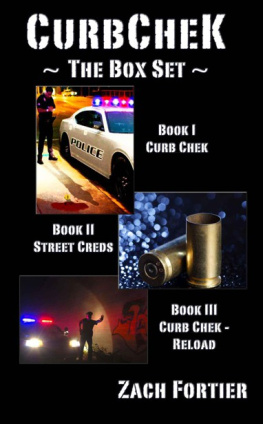Fortier Mark - Theory/Theatre
Here you can read online Fortier Mark - Theory/Theatre full text of the book (entire story) in english for free. Download pdf and epub, get meaning, cover and reviews about this ebook. year: 1997, publisher: Routledge, genre: Religion. Description of the work, (preface) as well as reviews are available. Best literature library LitArk.com created for fans of good reading and offers a wide selection of genres:
Romance novel
Science fiction
Adventure
Detective
Science
History
Home and family
Prose
Art
Politics
Computer
Non-fiction
Religion
Business
Children
Humor
Choose a favorite category and find really read worthwhile books. Enjoy immersion in the world of imagination, feel the emotions of the characters or learn something new for yourself, make an fascinating discovery.
- Book:Theory/Theatre
- Author:
- Publisher:Routledge
- Genre:
- Year:1997
- Rating:3 / 5
- Favourites:Add to favourites
- Your mark:
- 60
- 1
- 2
- 3
- 4
- 5
Theory/Theatre: summary, description and annotation
We offer to read an annotation, description, summary or preface (depends on what the author of the book "Theory/Theatre" wrote himself). If you haven't found the necessary information about the book — write in the comments, we will try to find it.
Theory/Theatre — read online for free the complete book (whole text) full work
Below is the text of the book, divided by pages. System saving the place of the last page read, allows you to conveniently read the book "Theory/Theatre" online for free, without having to search again every time where you left off. Put a bookmark, and you can go to the page where you finished reading at any time.
Font size:
Interval:
Bookmark:

THEORY/THEATRE
Theory/Theatre is a unique, absorbing introduction to literary theory as it relates to theatre and performance. It examines current theoretical approaches, from semiotics and post-structuralism, through cultural materialism, post-colonial studies and feminist theory.
In this, the third and fully revised edition of this now classic text, Mark Fortier expands and updates sections including:
queer theory
post-Marxist theory
technology and virtuality
post-colonialism and race.
Fortier also provides a brand new epilogue on cognitive science, and a revised glossary. This book remains the most accessible, useful and reliable study of its kind.
Mark Fortier is a Professor of English and Theatre Studies at the University of Guelph. He is co-editor of Adaptations of Shakespeare (Routledge 2000).
THEORY/THEATRE
An Introduction
Third edition
Mark Fortier

Third edition published 2016
by Routledge
2 Park Square, Milton Park, Abingdon, Oxon OX14 4RN
and by Routledge
711 Third Avenue, New York, NY 10017
Routledge is an imprint of the Taylor & Francis Group, an informa business
2016 Mark Fortier
The right of Mark Fortier to be identified as author of this work has been asserted by him in accordance with sections 77 and 78 of the Copyright, Designs and Patents Act 1988.
All rights reserved. No part of this book may be reprinted or reproduced or utilised in any form or by any electronic, mechanical, or other means, now known or hereafter invented, including photocopying and recording, or in any information storage or retrieval system, without permission in writing from the publishers.
Trademark notice: Product or corporate names may be trademarks or registered trademarks, and are used only for identification and explanation without intent to infringe.
First edition published by Routledge 1997
Second edition published by Routledge 2002
British Library Cataloguing-in-Publication Data
A catalogue record for this book is available from the British Library
Library of Congress Cataloguing-in-Publication Data
Names: Fortier, Mark, 1953 author.
Title: Theory/Theatre: an introduction / Mark Fortier.
Description: Third edition. | Milton Park, Abingdon, Oxon; New York:
Routledge, 2016. | Includes bibliographical references and index.
Identifiers: LCCN 2015039811| ISBN 9781138902039 (hardback) |
ISBN 9781138902046 (pbk.) | ISBN 9781315697628 (ebook)
Subjects: LCSH: TheaterPhilosophy.
Classification: LCC PN2039.F67 2016 | DDC 792.01dc23
LC record available at http://lccn.loc.gov/2015039811
ISBN: 978-1-138-90203-9 (hbk)
ISBN: 978-1-138-90204-6 (pbk)
ISBN: 978-1-315-69762-8 (ebk)
Typeset in Sabon
by Book Now Ltd, London
CONTENTS
Everyone who has attended much theatre knows that things happen on stage of which you would never be aware simply from reading a drama text.
Moreover, as Stanislavski so elegiacally pointed out, a theatrical performance vanishes the moment it is completed indeed, is vanishing as it is performed. We dont have access to the theatrical past in the way a museum or a library provides access to other historical art forms. We will never get to see Artauds The Cenci or Peter Brooks A Midsummer Nights Dream. Short of time travel, theres nothing to be done about that.
But theatre constantly resuscitates itself. New productions of old plays, new plays, constantly arise. Those who live in theatrical centres have access all the access time and money can afford to a range of theatre the rest of us can only dream about. Whatever theatre we do manage to see can serve as our personal examples for exploring, understanding and questioning the ideas in this book.
The rise of film and television and, more recently, computerized digital media provides access to theatre and theatre of the past of an order and type that is unprecedented. Streaming in cinemas of theatrical performances by the Royal Shakespeare Company and the National Theatre in London is a welcome development. Mediatized theatre is not the same as going to a live performance it is hard to imagine a filmed version of Punchdrunks Sleep No More (although apparently a virtual version is in the works!) but once we acknowledge and accept their differences, digital media have much to offer. The last thirty years have seen a steady flow of film and filmed theatrical versions of Shakespeare. Whereas Kemble and Kean are now only names and paintings, Olivier and Scofield can be seen in action. One might wait a long time to see a live version of Coriolanus, for example, but a film version with Ralph Fiennes can be ordered on Amazon. One can find occasional filmed works of Shakespeares contemporaries: Marlowe, Jonson, Webster. Chekhov can be had. All of Beckett has been filmed.
Film of some of the more recent historically seminal performances I discuss are out there to be found: Grotowskis Acropolis, the Performance Groups Dionysus in 69, the monologues of Spalding Gray, and the stand up of Andy Kaufman. There exists a harder to find filmed version of Twilight: Los Angeles. Angels in America, for colored girls who have considered suicide / when the rainbow is enuf, and The Laramie Project all exist in glossy HBO versions. There are films of Oleanna and M. Butterfly.
Media and availability develop so quickly and change so often that it would be pointless for me to provide sites where these works can be found. The astute student will want to use the various resources available libraries, search engines, YouTube, on-line stores and rentals, DVDs, blu-rays and whatever comes next, public showings and, most importantly, live theatre to flesh out the discussion of theatre in this book. All I can say is, keep looking, its probably out there.
I started working on the second edition of Theory/Theatre within a few years of the publication of the first edition. As I noted at the time, the act of revising was an interesting experience inasmuch as it was a rare occasion when the benefits of hindsight (mine but also that of many anonymous readers) could actually accomplish something. The task back then was to improve and clarify what could have been done better or more clearly the first time out. That improved second edition has now been the face of this work for almost fifteen years.
The revision this time has been a different experience altogether. It comes at a much greater distance in time from the second edition than the second came from the first. This time the experience is more like undertaking renovations on a house that has been neglected, or at least ignored, for a substantial period of time. I have gone over the second edition and found it, as far as it goes, gratifyingly solid. I have modified the text here and there, mainly when the passage of time has made something sound awkward or dated few words, I have found, age as badly as the word recent. But the essential task at hand has been to update the text when it seemed that something important has come about since the publication of the second edition, so that the discussion as it stands now seems particularly incomplete. These updates happen throughout the book, but a few areas have been the focus: the discussions of gender, masculinity and feminism, of twenty-first-century political theatre, of postmodernism, and of post-colonialism. Most prominent is an epilogue devoted to cognitive theory, which is, I believe, the area that has come most into prominence and was unaccounted for in previous editions of this work (thanks to Mark Kaethler for his thoughtful comments on this subject and what I have written about it).
Next pageFont size:
Interval:
Bookmark:
Similar books «Theory/Theatre»
Look at similar books to Theory/Theatre. We have selected literature similar in name and meaning in the hope of providing readers with more options to find new, interesting, not yet read works.
Discussion, reviews of the book Theory/Theatre and just readers' own opinions. Leave your comments, write what you think about the work, its meaning or the main characters. Specify what exactly you liked and what you didn't like, and why you think so.

